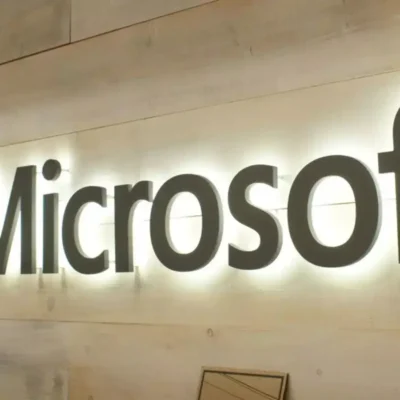Anti-Trump GOP bill protests are gaining momentum nationwide as hundreds of demonstrators march through cities across the United States. These protests have erupted in direct response to a controversial Republican-backed bill and former President Donald Trump’s renewed policy endorsements. The demonstrations are largely focused on growing concerns over civil rights violations, particularly affecting minority communities, women, and immigrants
These mass gatherings reflect growing concerns over the bill’s potential impact on voting access, free speech, and equal protection under the law. Supporters of civil liberties are calling the bill a dangerous step backward for democracy. The protests, organized by grassroots movements, advocacy groups, and civil rights organizations, have taken place in at least eight major cities, with more expected in the coming weeks.
Here are the key highlights and updates from the ongoing nationwide protests.
1. What Is the GOP Bill Sparking the Protests?
At the heart of the demonstrations is a GOP-backed bill recently introduced in Congress that opponents claim threatens core civil rights. The bill seeks to expand state powers in areas like voter registration, protest policing, and immigration enforcement raising fears of suppression and discrimination.
Protesters argue that the bill undermines long-standing protections and could disproportionately affect vulnerable communities, including people of color, LGBTQ+ individuals, and undocumented immigrants.
Activists say the bill reflects Trump’s hardline stance on civil liberties and his ongoing influence on Republican lawmakers.
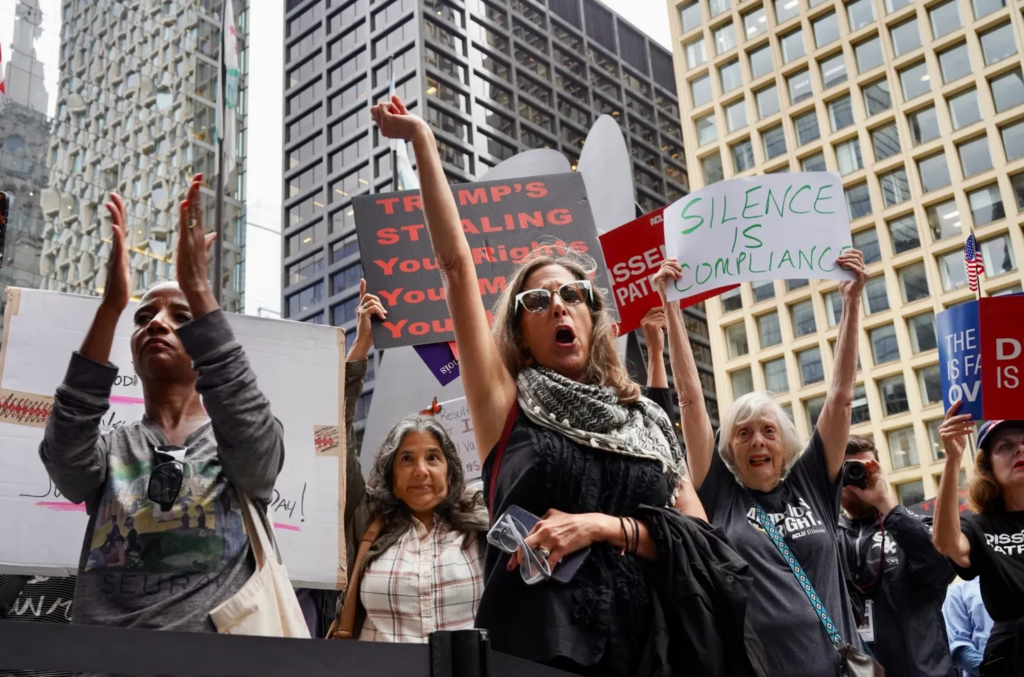
2. New York City Sees Massive Turnout in Times Square
One of the largest protests happened in New York City, where thousands gathered in Times Square, waving signs that read “Protect Our Rights” and “No to Trump’s Agenda.”
Civil rights leaders, students, union members, and families participated in peaceful marches that stretched across several blocks. The event featured speeches, music, and moments of silence for victims of past injustices.
Organizers called for unity and urged lawmakers to reject the bill. Many participants also expressed concern over the possible return of Trump in the 2024 presidential race.
3. Chicago Protest Highlights Voting Rights Concerns
In Chicago, protestors focused on the bill’s proposed changes to voting regulations. Demonstrators gathered outside the state courthouse and carried banners that read “Let Us Vote” and “Democracy, Not Suppression.”
Community leaders spoke about the importance of protecting access to the ballot box, especially for low-income and minority voters. The protest featured testimonies from elderly residents who lived through earlier voting rights struggles.
Organizers linked Trump’s past rhetoric and GOP policies to ongoing efforts to control elections and reduce public participation.
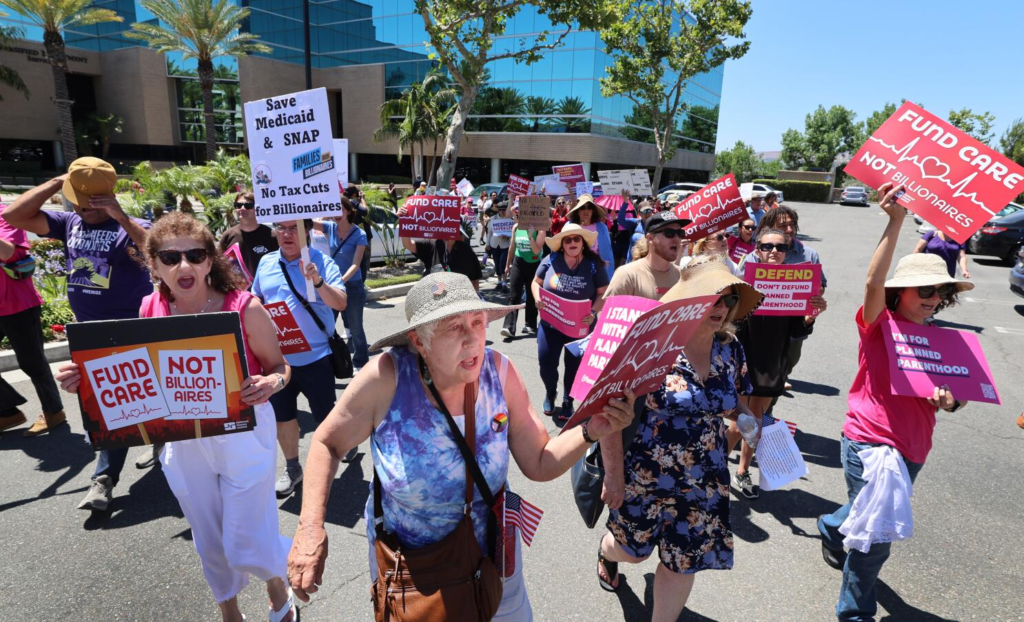
4. Los Angeles Rallies for Immigrant and LGBTQ+ Rights
Los Angeles saw strong participation from immigrant advocacy groups and LGBTQ+ organizations. The rally was held near City Hall and focused on the bill’s provisions that could give state law enforcement more power to cooperate with federal immigration agencies.
Many speakers at the event highlighted fears of deportation, racial profiling, and anti-trans legislation.
Protesters emphasized that Trump-era immigration policies and conservative cultural wars are still shaping U.S. laws today. The crowd chanted messages calling for inclusivity, dignity, and human rights.
5. Atlanta March Features Powerful Civil Rights Legacy
In Atlanta, the birthplace of many historic civil rights leaders, protesters invoked the spirit of past movements to speak out against the GOP bill. The march passed through key landmarks including the Martin Luther King Jr. National Historical Park.
Participants included civil rights veterans, college students, and clergy members. Organizers emphasized that the fight for equal rights must continue in the face of modern political threats.
Many compared current GOP proposals to past voter suppression tactics used during the Jim Crow era.
6. Washington, D.C. Protest Draws National Attention
A large crowd gathered outside the U.S. Capitol in Washington, D.C., making it one of the most high-profile demonstrations of the week. Protesters demanded that Congress take immediate steps to block the bill and protect constitutional rights.
Speakers urged President Biden to veto any legislation that limits free speech, restricts protests, or weakens civil protections.
The event was widely covered by national media and included virtual messages from human rights activists, authors, and former lawmakers.
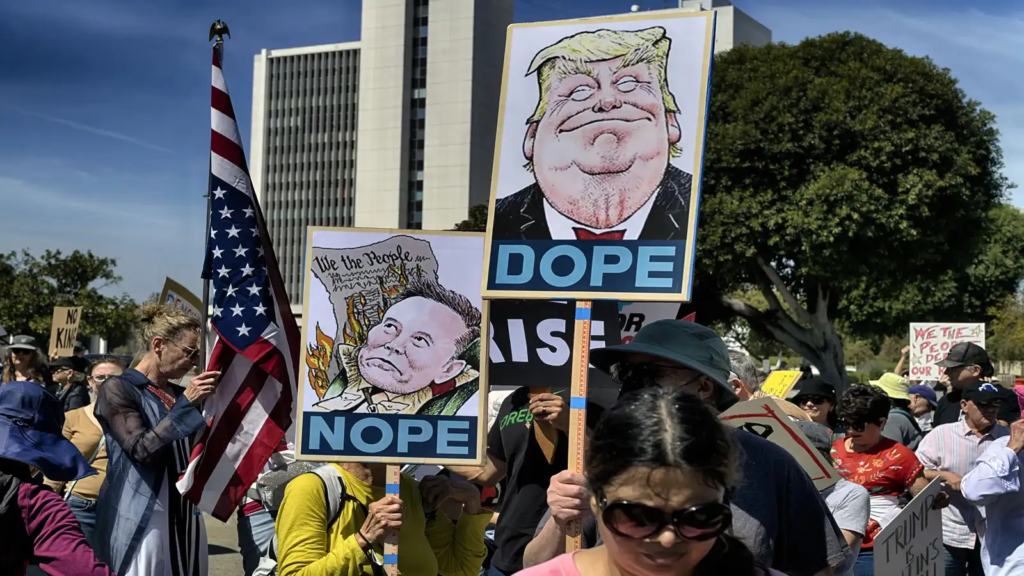
7. Youth-Led March in Austin Gains Momentum
In Austin, Texas, a youth-led protest organized by college and high school students gained traction online. The students expressed fears about how the bill could affect freedom of expression, school policies, and voting access for young adults.
Their messages focused on civic education, transparency, and holding elected officials accountable. Protesters encouraged their peers to register to vote and participate in upcoming local elections.
The demonstration drew strong support from teachers, parents, and local nonprofits.
8. Seattle Protest Focuses on Police Accountability
In Seattle, activists tied the GOP bill to concerns about police overreach and the right to protest. Demonstrators carried signs saying “Our Streets, Our Rights” and staged a peaceful sit-in outside the city council building.
Organizers accused the bill of attempting to criminalize dissent by increasing penalties for public demonstrations and limiting legal protections for protestors.
This rally was supported by social justice groups that formed in the wake of the 2020 Black Lives Matter protests.
Americans Push Back Against Trump’s Continued Influence
The scale and coordination of the anti-Trump protests nationwide show that many Americans remain deeply concerned about the direction of U.S. policy especially when it comes to civil liberties. Though Trump is not currently in office, his legacy continues to shape Republican strategies and lawmaking efforts across the country.
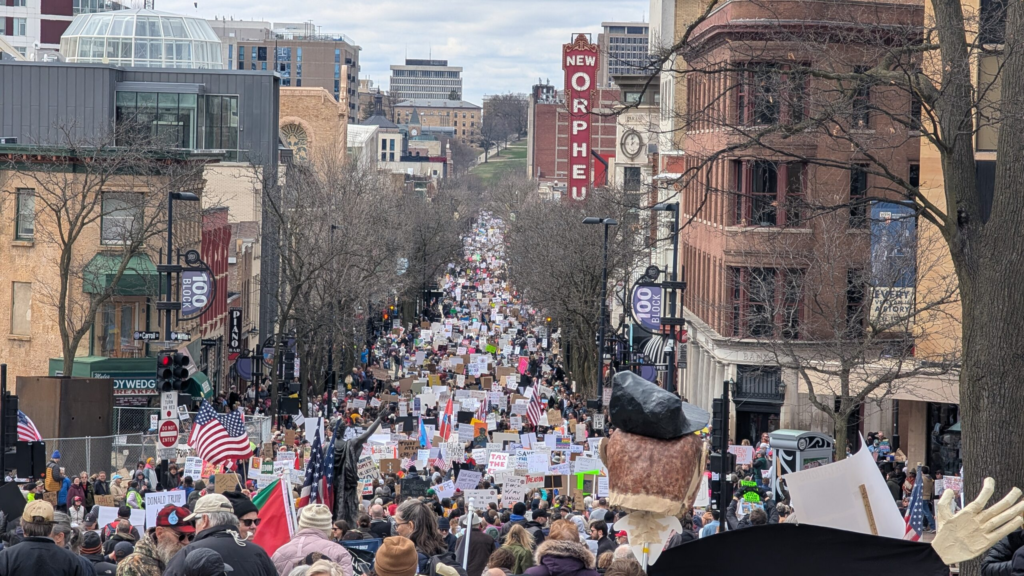
Opponents of the bill say the protests are not just about one law they are about defending democracy, ensuring justice, and stopping any return to discriminatory practices.
What’s Next?
Organizers say the protests will continue throughout the summer. Several large demonstrations are already being planned for swing states and major legislative hubs.
Activists are also focusing on voter registration drives, legal challenges to the bill, and public education campaigns. Their goal is to build a broad coalition that can pressure lawmakers at the state and federal level to reject policies they view as authoritarian or harmful.
As the 2024 election approaches, the protests could influence debates, shape party platforms, and remind politicians that Americans are watching and ready to act.
Conclusion
The nationwide anti-Trump protests over the GOP bill mark a critical moment in the national conversation around civil rights, political accountability, and citizen action. From coast to coast, Americans are standing up for their values, demanding transparency, and urging leaders to protect the freedoms that define the nation. Whether these efforts succeed in blocking the bill or reshaping the narrative, one thing is clear the movement is gaining strength.
Read more – Andrew Hider Baxter CEO: Baxter International Names ATS’ Andrew Hider as Next CEO





